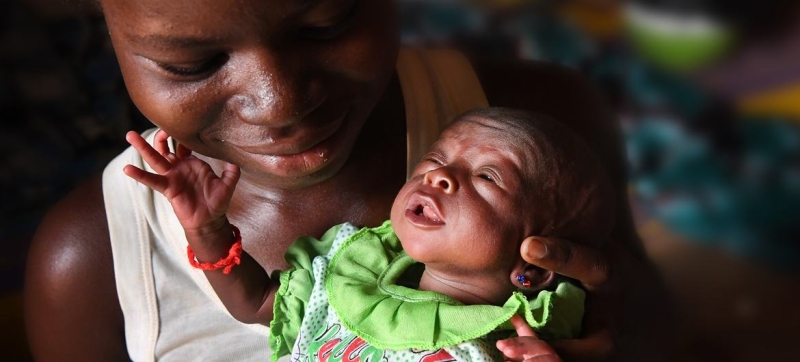
Birth registration remains a challenge in some African countries. Pictured: A young mother with her displaced baby in Burkina Faso. UNICEF: 150 million children under five not registered at birth Human Rights
Over the past five years, more than 500 million children under five have been officially registered at birth – that’s about 8 out of 10 babies worldwide. This success represents significant progress in ensuring children’s rights, UNICEF says. But much remains to be done, the organization says in a new report.
Children “Invisible” to the System
Since 2019, when the birth registration rate was 75 percent, it has risen to 77 percent. However, about 150 million children under five – that’s one in five children in that age group – are not registered and remain “invisible” to government systems.
More than 50 million children registered at birth do not have a birth certificate. This document is necessary to obtain citizenship, prevent statelessness, and protect a child’s rights from birth.
Official Status and Protection
“Birth registration gives children a legal identity, protects them from exploitation, and provides access to health care, education and other essential services,” said UNICEF Executive Director Catherine Russell. “Today, we celebrate progress in protecting children’s rights, but we call for further efforts to ensure that every child in the world is registered at birth.”
Success Stories
Progress has been achieved as many countries have simplified the registration process, made it more accessible, eliminated fees, and adopted digital technologies. For example, in Latin America and the Caribbean, 95 percent of children are registered, in East and Southeast Asia, 94 percent, and in Central and South Asia, 78 percent.
The situation in Africa
However, the situation is less favorable in sub-Saharan Africa, where only 51 percent of children are registered. This region accounts for half of the world’s unregistered children (90 million).
Rates vary across Africa. In Southern Africa, 88 percent of children are registered, while in West Africa the figure has risen to 63 percent in the past 15 years. In East and Central Africa, only 41 percent of children are registered. If the situation continues, there could be more than 100 million unregistered children in the region by 2030.
Many families face challenges: they live far from registration centres, do not know how to register, or cannot afford the fees. Sometimes the process is affected by discrimination based on gender, religion, or ethnicity.
However, there are also success stories. For example, Botswana has completely solved the birth registration problem, while in Côte d’Ivoire, coverage has reached 90 percent. Rwanda, Sierra Leone, and Tanzania have also made significant improvements in recent years. These countries can be role models for their neighbors.
Simplify the process
UNICEF calls for registering every child at birth, simplifying the registration process and making it more convenient, using health, education, and social assistance systems to increase coverage, implementing laws to ensure equal access to registration for everyone, and raising awareness of the importance of registration.
“Every child must be visible to the state in order to receive the protection and support they deserve,” stressed Catherine Russell.
